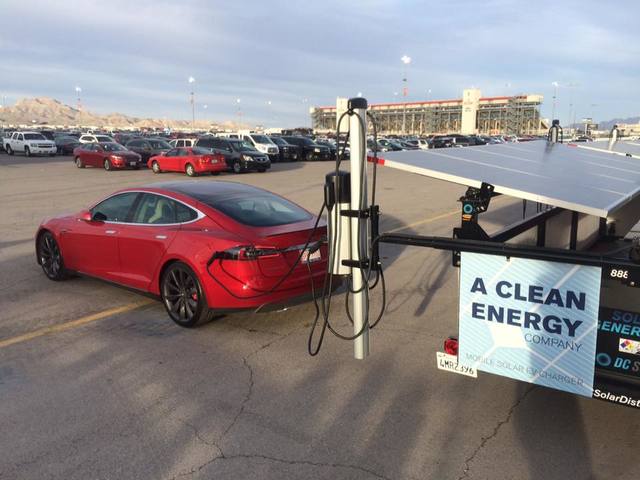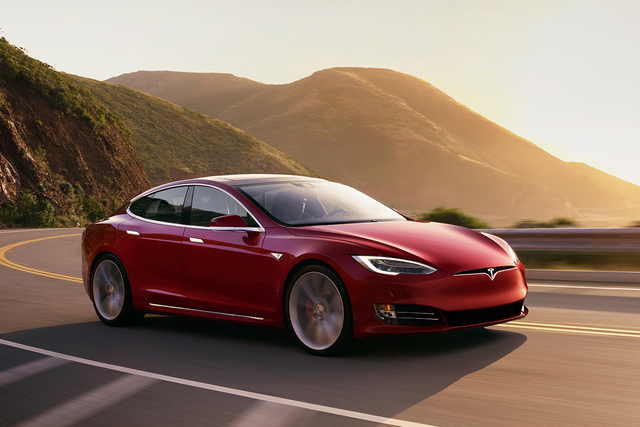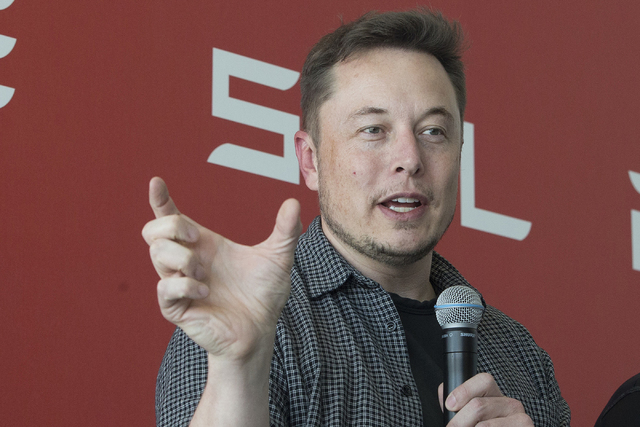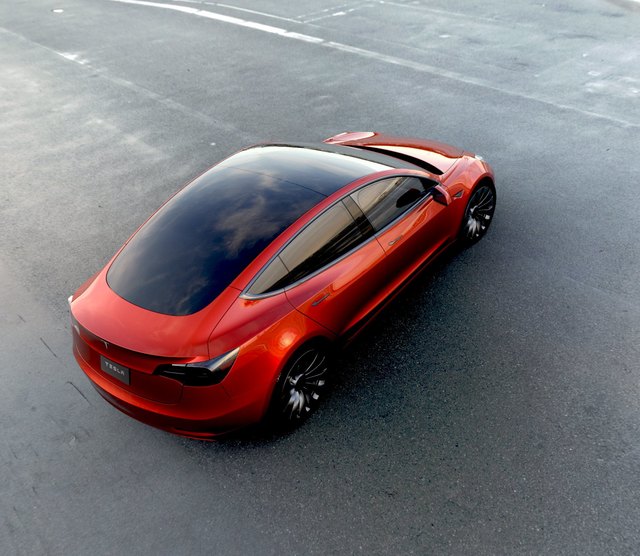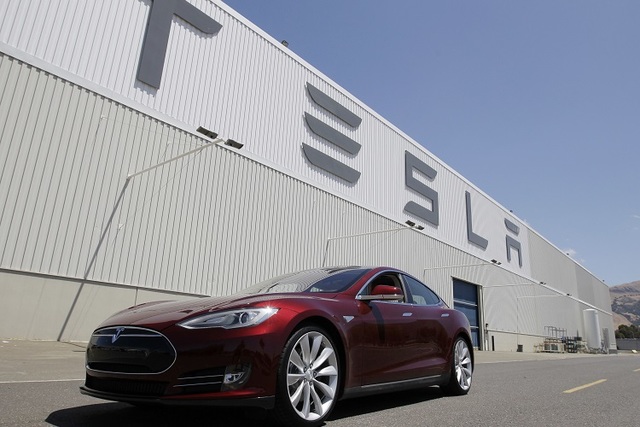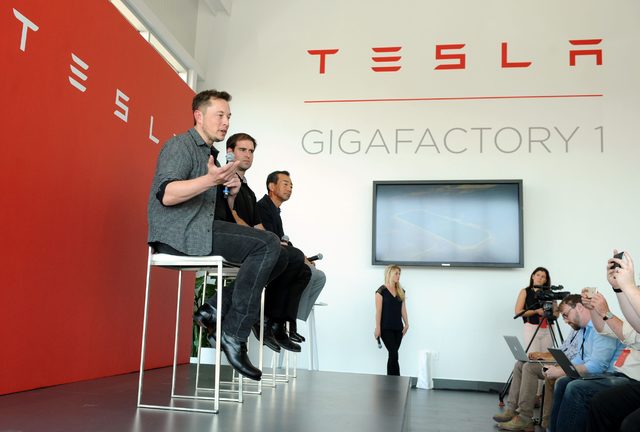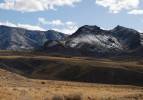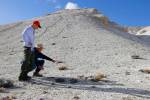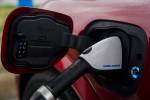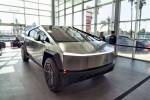Tesla begins producing battery cells at Nevada gigafactory
CARSON CITY — Electrical car manufacturer Tesla on Wednesday began producing lithium-ion battery cells at its gigafactory east of Reno for use in its new Model 3 and for its storage products.
In an announcement on the company’s website, Tesla and Panasonic announced the beginning of mass production of lithium-ion battery cells.
The high performance cylindrical “2170 cell” was jointly designed and engineered by Tesla and Panasonic to offer the best performance at the lowest production cost in an optimal form factor for both electric vehicles and energy products, the companies announced.
Production of 2170 cells for qualification started in December and on Wednesday, production begins on cells that will be used in Tesla’s Powerwall 2 and Powerpack 2 energy products. Model 3 cell production will follow in the second quarter and by 2018, the gigafactory will produce 35 GWh/year of lithium-ion battery cells, nearly as much as the rest of the entire world’s battery production combined.
The name of the cell comes from its measurements. The diameter is 21mm x 70mm in height. The size was jointly determined by Tesla and Panasonic to be the optimal size for EV battery cells. It is the best optimization of performance metrics needed for an EV at the lowest production cost, Tesla said.
Steve Hill, director of the Governor’s Office of Economic Development, Tweeted the news and called it a “milestone announcement on the gigafactory progress.”
Gov. Brian Sandoval and the state Legislature in 2014 approved a $1.3 billion incentive package to lure the factory to Nevada.
Sandoval said the Tesla announcement is further proof that Nevada is a great place to innovate and do business.
“Tesla has been a strong state partner, has had a significant influence on regional development and continues to fulfill expectations,” he said.
Production in Nevada moves the process to the U.S. from Japan. The company did not disclose production numbers from the first day of mass production.
Tesla, the electric car company led by billionaire entrepreneur Elon Musk, is building the $5 billion lithium-ion battery factory in partnership with Panasonic Energy Corp. of North America at the Tahoe Reno Industrial Center in Storey County east of Reno.
Musk has said the battery production is essential to making Tesla’s Model 3 sports car less expensive and available to a wider market.
Tesla currently employs more than 850 full-time employees and there are more than 1,700 construction workers at the gigafactory. The company said last month that it expects to hire more than 1,000 additional full-time employees at the gigafactory in the first half of 2017.
The gigafactory is being built in phases so that Tesla, Panasonic, and other partners to allow manufacturing immediately inside the finished sections and then expand. Tesla said the phased approach will allow the company to learn and improve construction and operational techniques to drive down the cost of energy storage.
The gigafactory now has a presence of 1.9 million square feet, which houses 4.9 million square feet of operational space across several floors. The building is less than 30 percent complete.
With the gigafactory now online and increasing production, Tesla said the cost of battery cells will significantly decline. By bringing down the cost of batteries, Tesla said it can make its products available to more people, “allowing us to make the biggest possible impact on transitioning the world to sustainable energy.”
Contact Sean Whaley at swhaley@reviewjournal.com or 775-461-3820. Follow @seanw801 on Twitter.
RELATED
7 things you probably didn't know about the Tesla Gigafactory
Lawmakers tour Tesla's secretive battery factory
Tesla picks Nevada for Gigafactory



